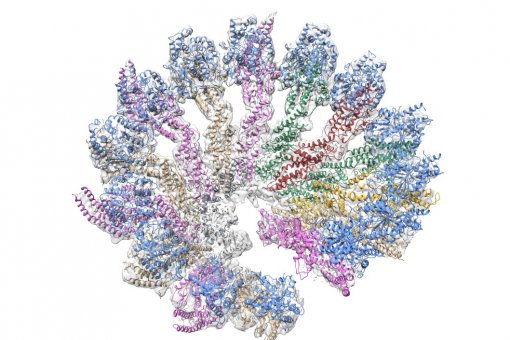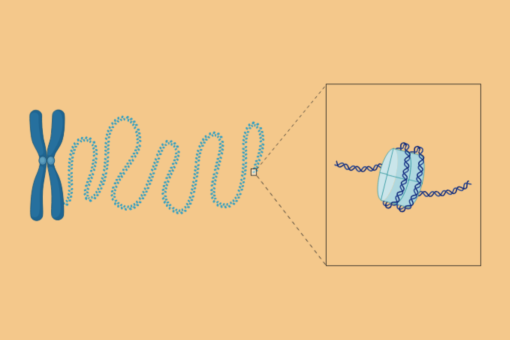Images
Contact

The study, headed by Joan Massagué in New York, has involved researchers at IRB Barcelona and Hospital Clínic-IDIBAPS.
A study by researchers in New York and Barcelona reveals how breast tumours use a specific type of molecule to promote metastasis – the spread of cancer cells. Metastasis is the cause of approximately 90% of all deaths caused by cancer. This study has been led by Joan Massagué, at the Memorial Sloan-Kettering Cancer Center, in collaboration with Roger Gomis, at the Institute for Research in Biomedicine (IRB Barcelona), a centre in which Massagué is adjunct director, and Cristina Nadal, at the Hospital Clínic-IDIBAPS. The article will be published on 4 April in the journal Cell.
The study examines how cells communicate through several signalling molecules called cytokines. These molecules orchestrate a wide range of cell behaviour, such as cell growth and movement. One critical cytokine, TGFβ (Transforming Growth Factor β), normally suppresses tumour development. However, according to the findings of this study, cancer cells have the capacity to use these cytokines for their own gain by making them spread the cancer cells rather than eliminating them.
First, using computer-based analysis to classify tumour cells from breast cancer patients on the basis of their levels of TGFβ expression, the researchers observed that almost half the breast tumours showed active TGFβ. The tumours affected were more aggressive and showed a greater percentage of metastasis to the lung during the course of the disease.
In the following set of experiments, involving mice, the researchers observed that TGFβ promoted breast cancer cells to produce a second cytokine, known as angiopoietin-L4, which enhances the capacity of the cancer cells to spread to lungs through blood circulatory system. The results show that breast cancer cells use Angiopoietin to break down the thin capillaries of the lungs, thereby facilitating their invasion of lung tissue.
For the researchers it was essential to test the effects of TGFβ not only through the genomic analysis of hundreds of patients but also using experiments involving live cells from these patients. "These experiments with cells from patients confirm the mechanism observed in hundreds of frozen tumours", explains Roger Gomis. Thanks to the collaboration with the Hospital Clínic-IDIBAPS and IRB Barcelona, this study has been furthered using samples taken from patients in an advanced stage of the disease. The study exemplifies cooperation between basic researchers and hospital clinicians and centres from distinct continents.
"Our study demonstrates that TGFβ enhances the metastatic capacity of breast cancer in humans and shows how cancer cells learn to exploit cytokines by making them spread breast cancer", explains Joan Massagué. Given that cytokines act outside the cell, they can be more easily targeted by drugs that block their activity.
The researchers are now working on determining whether TGFβ and angiopoietin act in the same way in other types of tumour, and are evaluating ways to interfere with the action of these cytokines to prevent metastasis in cancer patients.
Several pharmaceutical companies are currently testing TGFβ-blocking compounds in clinical trials as candidate drugs against breast cancer, melanoma and other types of cancer. This new advance confirms the possibility to develop drugs that interfere with the action of TGFβ in order to prevent and treat cancer metastasis. In addition, the study also points to Angiopoietin as another potential target to interrupt TGFβ-induced stimulation of metastasis without interfering with the beneficial effects of this cytokine on the body. According to Cristina Nadal, "several components are needed to obtain these results, among others, a daily effort of collaboration between clinicians and scientists in basic research, a common motivation to understand the mechanisms of metastasis formation and a practical spirit addressed to find drugs to prevent its growth".
This research has been financed by the U.S. National Health Institutes, the Kleber Foundation, the Hearst Foundation and the BBVA Foundation, the latter through its support of the IRB Barcelona Oncology Programme, and more specifically, to the Metastasis Lab.
Reference article:
TGFβ primes breast tumors for lung metastasis seeding through angiopoietin-like 4.
David Padua, Xiang H-F. Zhang, Qiongqing Wang, Cristina Nadal, William Gerald, Roger R. Gomis, and Joan Massague
Cell, 2008; DOI 10.1016/j.cell.2008.01.046
About IRB Barcelona
The Institute for Research in Biomedicine (IRB Barcelona) pursues a society free of disease. To this end, it conducts multidisciplinary research of excellence to cure cancer and other diseases linked to ageing. It establishes technology transfer agreements with the pharmaceutical industry and major hospitals to bring research results closer to society, and organises a range of science outreach activities to engage the public in an open dialogue. IRB Barcelona is an international centre that hosts 400 researchers and more than 30 nationalities. Recognised as a Severo Ochoa Centre of Excellence since 2011, IRB Barcelona is a CERCA centre and member of the Barcelona Institute of Science and Technology (BIST).




